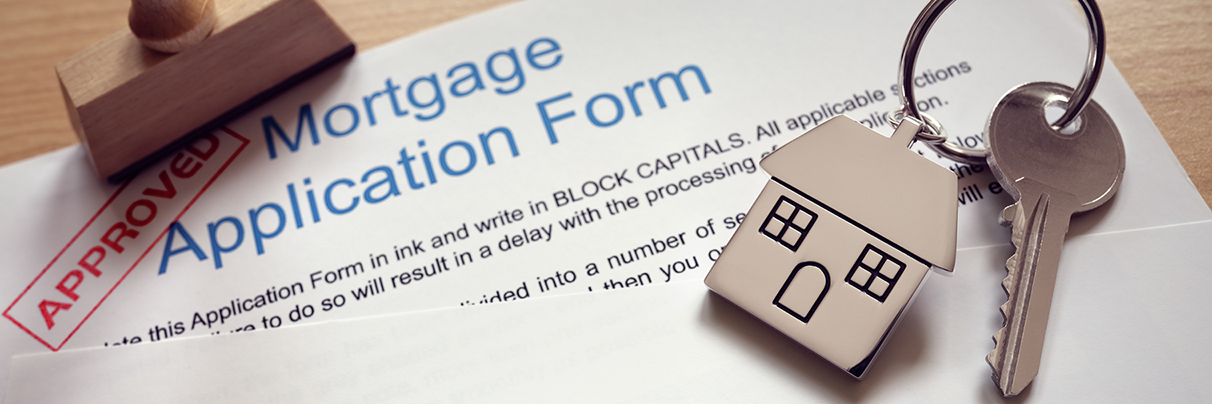Taking out a mortgage can be confusing and seem like a difficult path to navigate. There are common questions that crop up from new and experienced homeowners alike, so we’ve put together a guide of FAQs about mortgages to serve as a quick reference. The questions are divided by category to help you find the answer to your question.
Types of Mortgages
What is the difference between an adjustable mortgage and a fixed-rate mortgage?
A fixed-rate mortgage is a mortgage where the APR (annual percentage rate) is fixed at a specific value for the life of the mortgage. On the other hand, an adjustable-rate mortgage (ARM) is where the rate can fluctuate to some extent. Typically, the amount that the mortgage can fluctuate is limited to a range, and the value follows some financial index in the US.
What’s the difference between a 3/1, 5/1, and 7/1 ARM?
A 3/1 ARM is a mortgage with a fixed interest rate for three years and then fluctuates each year for the rest of the mortgage. 5/1 and 7/1 ARMs are similar but with a 5-year or 7-year fixed-rate period in the beginning.
What types of federal or state programs exist to help me afford a mortgage?
Depending on your situation, you may qualify for specific government programs to help you afford a home. If you are a veteran or the surviving spouse of a veteran, you may be eligible for a VA loan, which is insured by the US Department of Veterans Affairs. These are low-interest loans with no down payment.
Some qualifying homebuyers, specifically those with suboptimal finances, may qualify for an FHA mortgage. These are government-backed mortgages with lower down payments and lower monthly payments.
USDA loans are another loan program that offers a zero-down option. These are usually reserved for rural buyers and are funded by the US department of agriculture.
Qualifying for a Mortgage
How do I figure out the price of the home I can afford?
To help you understand how much you can afford, you’ll want to look at your finances and current budget. There are many factors to take into account, though, and using a calculator can help with this. You can check out the home affordability calculator on our website.
What are the most critical factors in qualifying for a mortgage?
The most important factors are those that show that you are in a good financial position to afford a home and that you are going to pay back the loan on time and in full. These include credit score, income, down payment size, and current debt.
What do the terms pre-qualification and pre-approval mean?
Pre-qualification and pre-approval are both mortgage application processes that get you on the road to finalizing a mortgage. Pre-qualification is a much less certain and much less involved process. Essentially, pre-qualification is when a lender gives you an estimate of how much you can borrow. It doesn’t provide you definite approval, but it’s a good indicator of how much you will be approved for.
Pre-approval is much more involved, and you usually have to provide information for an extensive check of your finances. The result is that the lender will give you a conditional offer of how much you will be approved for.
Learn More About Qualifying for a Mortgage Loan
Applying for a Mortgage
What is the process for applying and getting approved for a mortgage?
Applying for a mortgage requires that you provide financial documents (see below), fill out an application, and have that application evaluated by a lender. The lender may ask you additional questions, so watch out for communications from them. The lender will then schedule an appraisal and do a title search to make sure that there are no conflicts with the ownership of the home you are buying.
What kind of documents do I need to provide when applying for a mortgage?
This varies based on the lender but will likely include proof of income, proof of assets, profit and loss statements if you own a business, proof of debts, credit information, social security number, and tax information from the last few years.
Refinancing Your Mortgage
What is refinancing?
Refinancing is a process wherein you replace your mortgage with a new one using the new mortgage to pay off the old loan. You stop making payments on the old loan and resume payments on the new mortgage.
When might someone want to refinance?
People often choose to refinance when refinancing will save them money monthly or over the life of the whole loan. People usually refinance when interest rates for mortgages have dropped overall, your credit score has improved, or you can afford to shorten the term of your mortgage to save money on interest overall.
Managing Your Mortgage and Home Equity
How should I manage my mortgage payments?
Failing to make your monthly mortgage payments can quickly become a significant issue. To avoid this, you’ll want to set a budget and stick to it. It’s also a good idea to establish an emergency fund if something goes wrong in your home or you have an unexpected financial crisis that leaves you unable to pay.
You’ll also want to watch out for ways to save money over the life of your mortgage. You can typically do it by refinancing — so keep an eye on interest rates as they fluctuate.
How can I utilize my home equity?
There are ways to tap into your home’s equity and leverage it to borrow money with low interest. These include a home equity loan, or a cash-out refinance.
Shopping for a Mortgage
If you’re shopping for a mortgage, one of the best things you can do is look at several lenders and a variety of financial institution types. You can check out Greater Texas Credit Union’s competitive rates today and find out more about the loans we offer at the following link.


